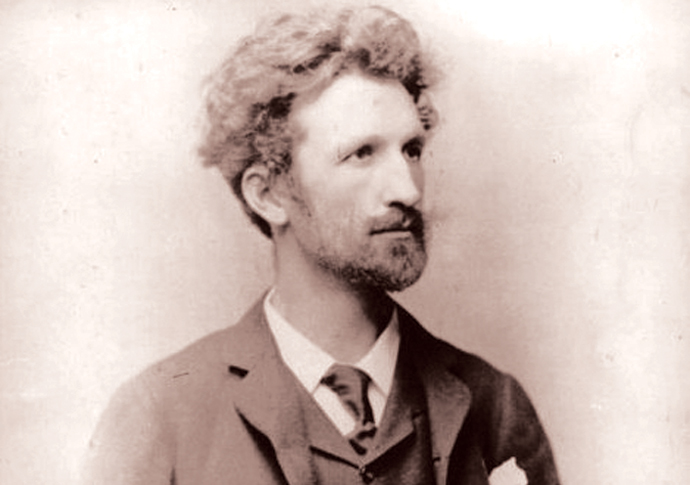How MP described as an ‘aristocratic Socialist and cowboy dandy’ shocked the Commons
In the latest in his series on eminent Victorians, Neil Titley considers the flamboyant Robert Cunningham-Graham
Thursday, 30th January 2025 — By Neil Titley

Robert Cunningham-Graham
THE General Election of 2024 has meant the arrival of many new MPs at Westminster, all of whom are undergoing the honour and sometimes ordeal of delivering their maiden speech to the House of Commons.
By tradition, these addresses are jovial and non-controversial. But not always.
Described by The Times as “the aristocratic Socialist and cowboy dandy”, Robert Cunningham-Graham was elected to Parliament in 1886. Graham, a tall, strikingly handsome man with long flowing hair, ignored the polite conventions and began his speech by describing the Conservative domestic policies as creating “a heaven for 30,000 and a hell for 30 million” and that the only real pillar of the British Empire was “the Hotchkiss machine-gun”.
The Liberal members were “crutch-and-toothpick gentlemen”, while the Radicals were told that they were: “all Tories in disguise, trying to get their snouts into the State swill. The bottle-washers of capitalism.”
Moving on to the subject of House of Lords bishops, he commented: “When the debates for abolition of slavery took place in the Lords, almost every bishop voted for its retention. Therefore, I am not inclined to attach much importance to the testimony of bishops.”
Leaving the Commons aghast, he strode out of the chamber into the Palace Yard, leapt on his huge black stallion and galloped off up Whitehall.
He also had the distinction of being the first MP ever to be suspended from the House of Commons for swearing.
Cunningham-Graham (1852-1936) was born into a family of minor Scottish nobility and attended Harrow School for a short time. Aged 17 he ran off to the Argentine in search of profit. He was given a rapid introduction to South American life by being recruited into a rebel army at the point of a dagger and reluctantly joining his new colleagues in a campaign of pillage across the pampas.
While spending his time escaping battles, typhus and prisons, Graham became a superb horseman. He was accepted by the gauchos as one of their own and was given the nickname of “Don Roberto.”
His next exploit was to attempt to drive horses north through Paraguay, still in the throes of its own horrific civil war, up to Brazil. On the journey all his men deserted and Graham, unable to break his way through the Brazilian jungle and facing attack from blowpipe-wielding tribesmen, had to escape with his one remaining horse by floating down river on a raft.
Travelling back to Paris he perfected his skill as a sword fencer and married an 18-year-old Chilean aristocrat named Gabrielle. In 1878 the couple, in search of a fortune, arrived in New Orleans. They departed soon afterwards as Graham had duelled with “a certain gentleman who came out second best”.
The Grahams decided that their best financial prospect was to export cotton into Mexico. Having fought off tribal and bandit attacks on their way south from the Texan border, they arrived in Mexico City to find that the bottom had fallen out of the cotton market.
Thwarted and almost penniless again, Graham renamed himself “Professor Bontini” and opened a fencing academy in the city while Gabrielle left for New Orleans to give language lessons.
Returning to Texas, Graham became an interpreter for Buffalo Bill Cody’s hunting expeditions. They cleared enough money for the return home.
After he left the Commons in 1892, Graham resumed his travels and was hired to write pieces for the Saturday Review. In 1897 he was captured in the Atlas Mountains by a notoriously brutal local chieftain.
One of the man’s specialities was to imprison his slaves and prisoners at night by lowering them down by rope into a deep well and rolling a boulder over the top. Graham was subjected to this treatment but found a way to smuggle out two letters.
One went to the British consul asking for aid. The other one went to the Saturday Review. It read: “I fear it will be impossible for me to review the book you sent as I have spent the last four days as a prisoner down a well in the Atlas Mountains.”
While riding in the Moroccan desert, Graham was waylaid by a gang of fanatical Moslems. Brandishing rifles and knives they demanded: “Are you a Christian?” Graham roared back: “No! I’m a United Presbyterian!” This so puzzled the gang that they let him go.
Back at a London dinner party a guest sitting next to Graham was very impressed by Graham’s aristocratic lineage. She asked him whether it was true that there was royal blood in his family. “Madam,” replied Cunningham-Graham, “if I had my rights, I should be the King of England. And what a two weeks that would be!”
Cunningham-Graham went back to the Argentine to see the pampas one last time and died there aged 84.
Before his body was returned to Scotland the Buenos Aires Herald wrote: “On the procession down to the ship, the streets were lined with people, while two horses with empty saddles were led by gauchos behind the coffin. Thus Argentina bade farewell to one of the greatest friends she ever had, an ambassador of the heart.”
• Adapted from Neil Titley’s book The Oscar Wilde World of Gossip. See www.wildetheatre.co.uk also available at Daunts, South End Green, 020 7794 8206, hampstead@dauntbooks.co.uk